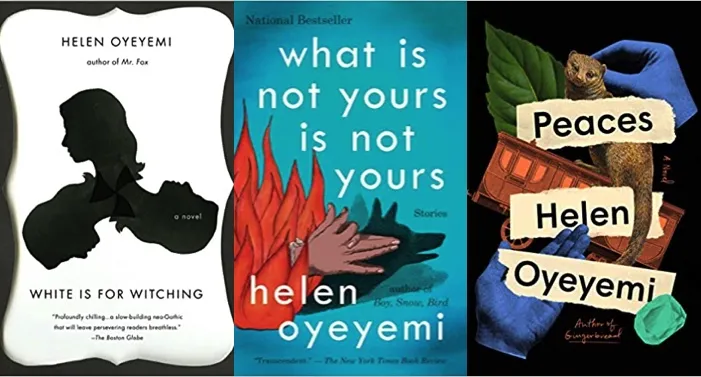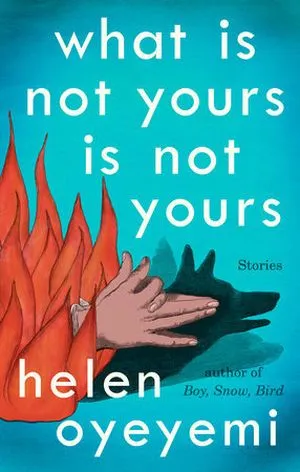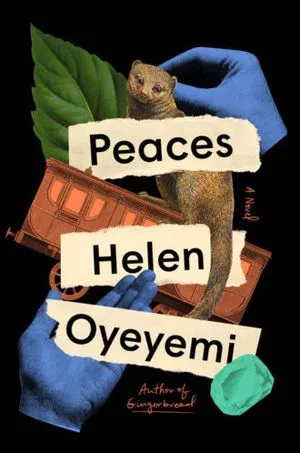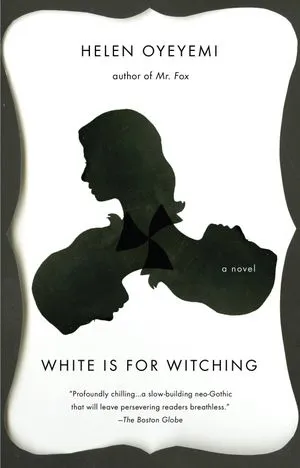
Once Upon A Fracture: A Helen Oyeyemi Reading Pathway
Helen Oyeyemi has been called the Queen of Fractured Fairytales, a master of misdirection, and is a well-known titan of the literary uncanny since her debut The Icarus Girl published in 2005. Her impressive career spans seven novels, a collection of stories, and few plays.
Oyeyemi was born in Nigeria and raised in England, and her work often explores the dichotomy of cultures. According to a recent profile by Vulture, Oyeyemi began her literary career as a proclaimed prodigy of the medium; she published her debut at 18. Now 36 and living in Prague, she continues to write about connections and relationships, cleaving and persevering in unordinary circumstances, and finding humanity and belonging in the unknown. She often explores emotions of displacement, isolation, and affection through BIPOC and queer characters.
Where to Start
Where to start, you might wonder? I began my journey and love of Oyeymi with her haunting novel White is for Witching, and we’ll start there. This pathway will contain two novels and a collection, as I am not as familiar with her plays. For more information on her plays, check out this page on Helen Oyeyemi’s author site.
Beginnings: Hauntings
White is for Witching (2009)
As I mentioned above, this was my first foray into Oyeyemi’s work, yet it is Oyeyemi’s third novel, after The Icarus Girl (2005) and Opposite House (2007). I read White is for Witching in college. As Oyeyemi referred to Hotel World by Ali Smith as an inspiration for what a writer is capable of, White is For Witching was, and continues to be, the same inspiration for my own writing.
The book follows Miranda Silver, whose mother dies when she is 16, further acerbating Miranda’s pica condition. On top of that, Silver House, converted into a bed and breakfast, dispatches any visitors it deems unworthy. It is a novel of hauntings, both paranormal and mundane, family politics, and a house with a particular malice for outsiders.
I awestruck by how a novel could be so exhilarating and haunting while also acting as a magnificent example of the uses of craft. It is perfect read for the fall and Halloween season, yet it is also timeless in the way it explores the dysfunctions of family and family secrets.
Middles: Fracturing the Short Form

What is Not Yours is Not Yours: Stories (2016)
While Oyeyemi’s (arguably) most popular novels are Mr. Fox (2011) and Boy, Snow, Bird (2014), as this is a Reading Pathway it is important to include Oyeyemi’s use of another form — in this case, short stories. So for readers looking to dabble in shorter works before hopping into novels, begin with What Is Not Yours Is Not Yours.
Oyeyemi tackles the meaning and various uses of keys in this collection. The books explores the spectrum of keys, literal and emotional (keys to a library, a garden, a secret, a heart…). As with her novels, there are infinite possibilities in Oyeyemi’s worlds.
If you enjoy the structures of the tales of these stories, and want more in the way of symbolism, fairy tales, and the like, I recommend then backtracking to Mr. Fox and Boy, Snow, Bird. Both contain a trope of a famous fairytale (Bluebeard/Mr. Fox, the wicked stepmother) and fracture them.
Ever After (For Now): Helen Oyeyemi’s Latest

Peaces (2021)
Oyeyemi’s latest book is labyrinthian both in its uncanny setting and with what it explores. It is a little different from Oyeyemi’s previous books, not a fairytale fracture so much as exploring the fractures of our past, our relationships, and the things that bind us. It follows Otto and his partner Xavier as they take a trip on a mysterious train and appear to be the only ones on board.
As soon as I began the novel, I was struck by its humor and the way it plops the reader right in the middle of this curious tale about a seemingly-endless train, a pet mongoose, and the train’s reclusive and elusive owner. This novel marks, to me, a new avenue of mesmerizing and inspiring work in Oyeyemi’s already impressive ouevre.
For those that enjoy Peaces, I then recommend delving into the book published prior to this one, Gingerbread (2019), which includes one of the best opening pages that I’ve ever read.
Whether you a fan of short stories, fairytales, or deft introspections of identity and relationships, Oyeyemi can provide. Whenever you open one of her books, you can trust in her authority to balance — quite effortlessly — misdirection and exploration.
Now settle into a comfortable chair, dim the lights, and read by candlelight if you must. Prepare to be haunted, dear reader; fractured, breathless, and thoroughly entertained.
Additional Resources
The character Helen Lee from Gingerbread was recently discussed in the SFF Yeah podcast episode “Backlist to the Future With Favorite Black Characters.” For more strange and uncanny fiction, check out this primer on the New Weird genre.









